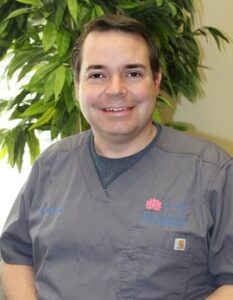 Dr. Travis McCoy, MD
Dr. Travis McCoy, MD
Reproductive Endocrinologist
Director of Male Fertility
Advanced Gynecologic Surgery
Dr. McCoy, explain testosterone in men?
The testicles make two things, testosterone, and sperm. And the production of these is regulated by the brain signals that go to the testicles and then the testosterone signals go back to the brain. So it regulates much like cruise control in your car. Each man is born with an inherent capability of testicles to produce sperm and that can vary from man to man. Most men should make normal testosterone levels and that should not really change over time. The sperm production capability should not fade away unless the guy has had serious medical issues such as treatment for cancer both chemo and radiation and/or diabetes. Outside of those, the inherent capability should not really change.
One thing that does change as guys age is the brain signals to the testicles will slowly fade away with aging. It’s considered to be normal physiology so it’s extremely common and can happen as early as the late ’20s, definitely through the ’30s, and a much higher proportion through the ’40s and ’50s of will have low testosterone levels because of the diminished brain signals. As they fade also the sperm production fades away and it’s actually one of the first things to go.
How does this impact male fertility?
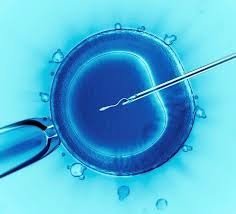
What are some of the signs of low testosterone?
Symptoms of lethargy, being tired, mood issues, decreased sexual drive, and even erectile difficulties as testosterone levels fall. Erectile dysfunction medicines do not have an impact on testosterone levels. They simply increase blood flow for erectile deficiency. If a guy comes in and complains about any sexual dysfunction those are typically fairly late effects so that is a big red flag for us that sperm production is most likely not normal.
In the general community, many men get tested by their primary care physician and find their testosterone levels are low, and instead of trying to correct the brain to testicle problem many of them are placed on testosterone. When a man takes testosterone the brain sees this normal level of testosterone and it doesn’t know where it’s coming from. Imagine coasting downhill on cruise control and the accelerator backs off and the brain cuts of the signals to the testicles. In doing so you actually lower your endogenous inherent testosterone production and sperm production comes to a halt as well. This hurts the patient because it does not get to the root cause of the diminished testosterone and brain communication with the testicles.
How do testosterone supplements affect sperm production?

The other reason I see men on testosterone is that many men use it for working out and body-building issues. So they use it to get that “cut” look we all know about. I see a lot of guys on kind of “black” market steroids and those have the same impact. Often guys use more than their body needs so it’s a harsher impact. They can usually be reversed with time. However, even some supplements that guys use can have an impact.
What about the creatine and protein powders?
They do not have any impact at all in regard to fertility treatment. Twenty years ago you couldn’t buy anything over the counter that had any significant impact, but now with the Internet and foreign manufacturers, people don’t fully know what they are getting including additives and fillers. Anything that has the word, “booster” can have the same effect. One of the problems is that when men order supplements online in an industry that does not have the same protocols and scrutiny of the FDA, etc., you don’t know all of the additives and ingredients within the product. I tell the guys that even these boosters or powders sold at vitamin stores here can have an effect on male fertility and testosterone levels. Anything besides protein and creatine powders has the potential for problems because you don’t know what’s in it and it’s not regulated.
What are the side effects or challenges of self-treatment with these supplements?
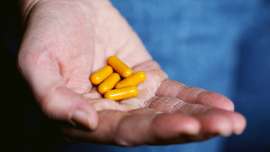
How does this impact fertility care for you and other PREG doctors?
Often times a man will be using a testosterone supplement and will not tell their spouse. These guys have to be honest with us. I tell them that they need to be honest with me about such use because bloodwork and labs don’t lie. The bloodwork and labs clearly tell us if any supplement he is using is a concern. Things like saw palmetto and lycopene do not have any effect. Usually, things that are considered straight vitamins do not have an effect. But sometimes when you get into supplements or vitamins that have Chinese herbs some of them can have testosterone-like qualities. If the bloodwork is okay it is obviously not having an impact from a fertility standpoint. Many times a patient will say they are not on anything and yet the bloodwork shows us otherwise.
Unfortunately, a large portion of primary care providers doesn’t know about the relationship between the brain and the testicles. Many don’t ask if they are taking testosterone before trying to get pregnant. It’s amazing how many don’t understand the relationship between testosterone and stopping sperm production.
Many women have been trying for 3-4 years to get pregnant and have no idea that their spouse or partner has been using supplements that have actually impeded sperm production and quality. Those make for a lot of angry conversations between partners.
All of these issues are some of the reasons we investigate the male partner first. These supplements can have a mass impact on sperm production. The mass majority of them are reversible so if a guy never had a pregnancy in the past sometimes I ask myself “why was he put on testosterone in the first place”. I will see some guys put on it because the testicles were not working normally and that was a sign of an underlying problem. And even though I can reverse that, I can only get them back to as good as they used to be and we don’t always know how good they used to be.
Significant testosterone use specifically with men using injectables it will stop all sperm production. The gels are not as powerful as shutting it down, but they will have significant issues.
The critical point for men wanting to have a family is that they know exactly what supplements they are taking, share with their spouse and doctors openly. We are here to help and in most cases, we can improve their chances for success, but they have to be honest with us and themselves.

866.725.7734
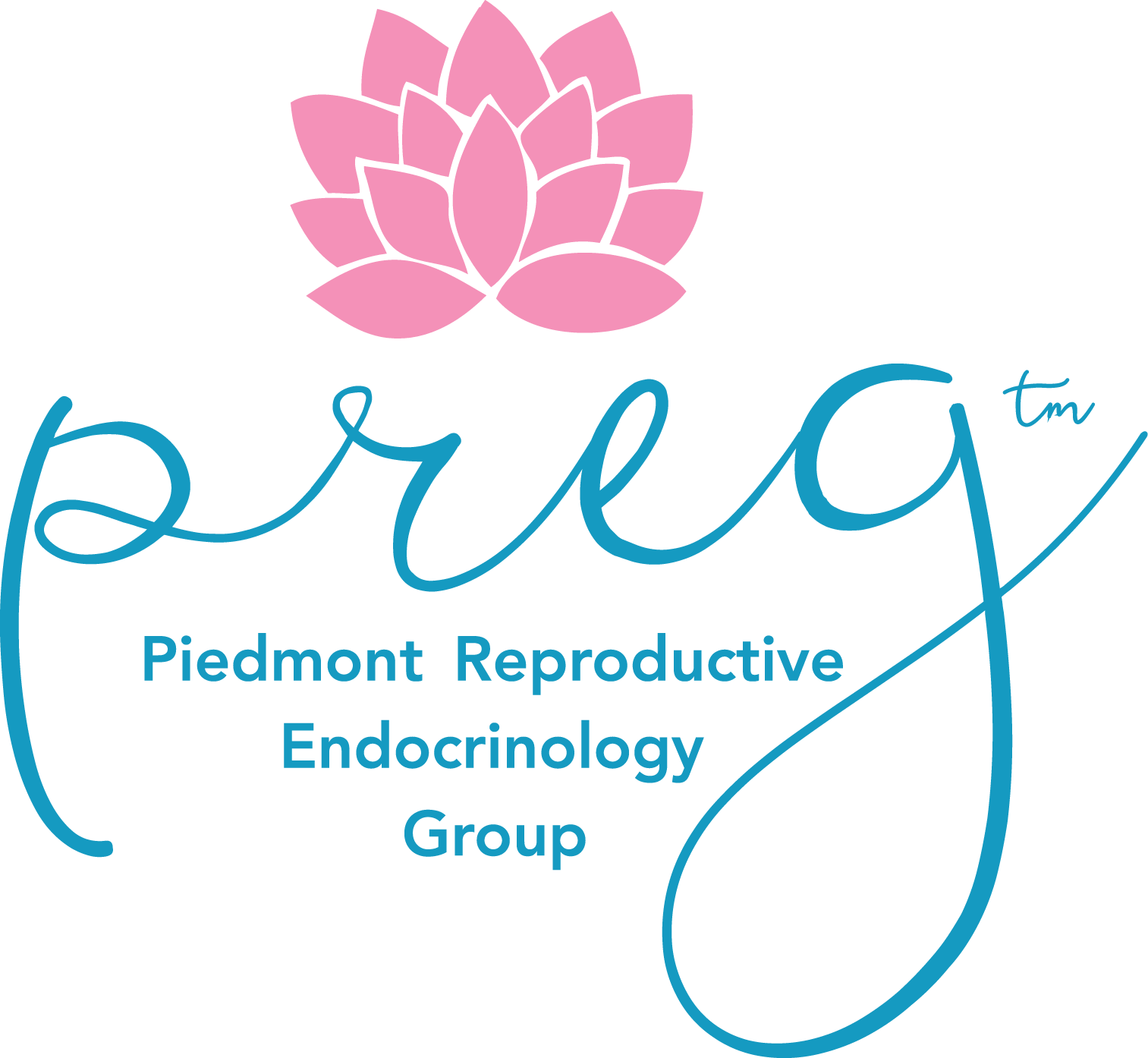


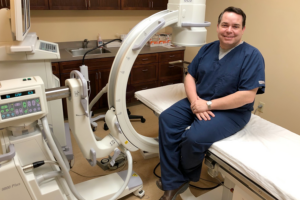 Dr. Travis McCoy, MD
Dr. Travis McCoy, MD